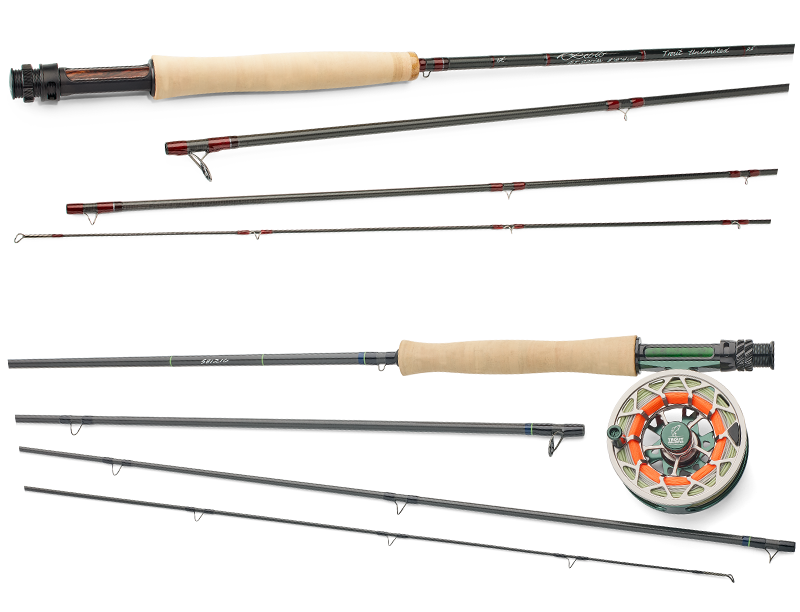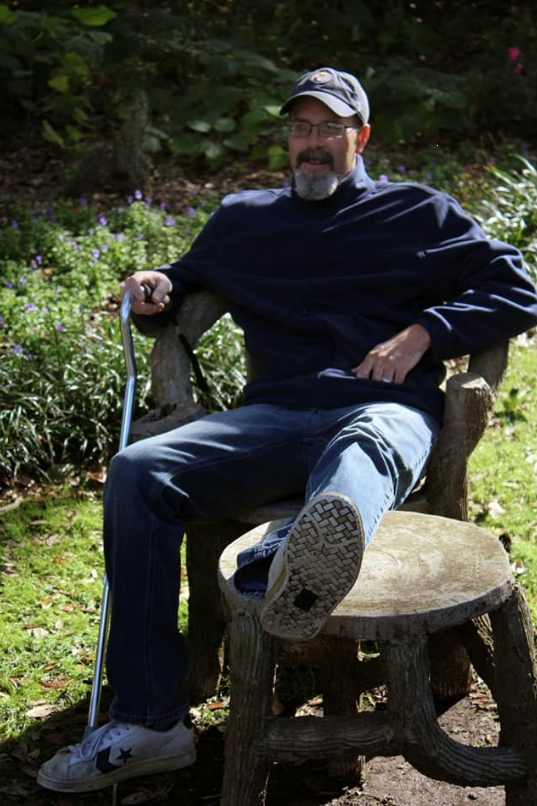By Chris Hunt
I’ve never been much of a public speaker. It’s just not my thing. But when my sister-in-law asked me to speak at my brother’s funeral … well, you don’t say ‘no’ to that.
In truth, I sobbed my way through the eulogy—Brice was my little brother, and while I could handle the idea of speaking to those who loved him about his life and who he was, the reality was much different. It’s one thing to kind of put your broken heart on the backburner and run a mental checklist about the funny stories you want to tell everyone to help them remember the good times, before my brother’s body was wracked by ALS. It’s another thing to stand up in front of a packed, standing-room-only funeral home and look out on the faces staring back at you. Through that lens, you see a mother who’s lost a son, a wife who’s lost a husband and son who’d lost a father.
Never mind that it’s my own baby brother in the casket.
The tears came quickly, as I recalled a camping and fishing trip many, many years ago with group of men—friends of our parents—to Caddo Lake, a wilderness oasis located along the border of Texas and Louisiana. Brice and I were the only kids on this spring-break adventure into the heart of some truly wild country only about and hour from home, but centuries removed from our comfortable East Texas lives that included everything from a pool in the back yard to a boat in the driveway.
Oh, and air conditioning.
Brice woke up last the first morning of our camping trip and wandered out of the tent to the smell of sizzling bacon and percolating coffee. He had packed his own bag the day before (something I’m sure my mother regrets), so he’d dressed himself in a baggy pair of sweatpants, a size-too-big Denver Broncos sweatshirt and—I’m not kidding—a pair of black and orange Spot-bilt football cleats. And he had them on the wrong feet.
Now, he might have been 11, and one could forgive the general lack of preparedness and, more importantly, concern. But these traits never really went away. That morning on Caddo Lake may have been my brother’s defining moment—he was gloriously immune to judgment. He didn’t march to the beat of a different drummer. He kept time to a completely different instrument. Maybe a saxophone. Or perhaps a cowbell.
I wanted to spend more time… recall more memories, but the grief I was feeling and the loss felt by others was palpable. I cut it short. Nobody wants to watch a 49-year-old man try and talk through tears for 10 minutes.
So now, a couple of weeks removed from my brother’s funeral, I’m ready to say more.
As kids living in East Texas, we spent much of our summers at the lake, waterskiing, fishing and swimming. If we weren’t at the lake, we were wandering the banks of the snakey Sabine River, running through the Big Thicket with friends. This latter adventure, something we did a few times each summer, always required a bit of planning. We needed … stuff.
You can’t wander off into what amounts to a hot, sticky jungle in July without certain necessities. You need bug spray. It’s not optional. A machete is important—even though we had to sneak this item in, for fear our mother would forbid it. Same with a pellet gun—you’d be surprised where you can hide a dependable old Crosman 760 Powermaster. We needed food and water. We needed sleeping bags and tents (you don’t sleep on the ground along the Sabine—my buddy Kenny learned that the hard way when he woke up with a copperhead under his shoulder one summer morning). And fishing gear—the river was full of catfish, sand bass and giant gar. It was a long list, and we prepped for a week before we ventured into the woods.
Brice was three years my junior—so when I was in my early teens, he was still pretty young. I think, looking back on it, he probably needed a bit more guidance when it came time to pack his bag, but I always begrudged him coming with me and my older friends on these adventures (my parents insisted, of course), so I never really offered it up. I just assumed that he’d be fine … that he’d know what was important, and what wasn’t. So when we got to our riverside campsite one early summer day in 1984—after hauling what looked like the contents of the Clampett’s old truck about a mile down the railroad tracks—I shouldn’t have been surprised when Brice’s backpack contained a single change of clothes and a copy of the 1983 Def Leppard album, “Pyromania,” on cassette. And no. No cassette player.
Later, as the age difference became less of an issue—and when we could introduce beer and football into the equation—we grew closer. We’d also moved back “home” to Colorado, so our fishing and camping adventures centered around the mountains close to Denver, and the trout streams our grandfather had introduced us to years before. We had a favorite spot, up above Leadville, where we could set up our tents, start a fire, open a beer and just be brothers. One Memorial Day weekend up at our favorite spot, it snowed a foot the first night we were there. I woke up, shook the snow off the tent, donned my boots and my jacket and went fishing. Brice, who didn’t pack boots or a jacket (but he did bring a bottle of cognac—seriously, what 19-year-old kid drinks cognac?), sat in the car all morning running the heater. And presumably listening to Def Leppard in the tape deck.
These were good times, before our lives took us to different places. After a stint in college, he moved south, where he worked as a blackjack dealer on a riverboat, tended bar and generally learned all the trades that come with the hospitality industry. I went the journalism route, moving around quite a bit before ending up here in eastern Idaho, where the fishing is good. By that time, Brice had come back to Colorado, and he eventually met and married his wife. Five years ago he and Autumn had a son, my nephew, Declan.
These last 10 years or so saw us transcend brotherhood. Brice and my youngest brother, Andy, became my friends. When I’d visit Denver, we’d spend real time together—time we hadn’t had since we were kids, when we were too damn young to appreciate it, or to understand its importance. We’d go to a Rockies game or find a pub somewhere and catch up. When I’d bring my kids with me, Uncle Brice was someone who listened and advised and cared—an alternative to parents who, as parents do, become a little numb to the day-to-day stuff.
In 2014, Brice was diagnosed with ALS, also known as Lou Gehrig’s Disease.
But before I write about how he died, this story is missing something … something about how Brice lived. And I’ve struggled with this for the last four years—it’s been my own personal crisis of faith.
During the summer of 1985, Brice and I mowed lawns to make a little extra money. I was driving my first car—a bronze 1980 Chevy Caprice Classic, the boxy four-door sedan that was about as uncool as a car could get for a 16-year-old. But, surprisingly, it could transport everything we needed to mow lawns. If we folded the handle of the lawn mower down, we could lift the grass-cutter into the trunk. The trimmer fit in just fine at an angle. One can of gas fit snuggly next to the mower, and a second gas can rested on the back seat.
On our way home from mowing the sprawling lawn of a radio station in Gladewater, Texas, about 12 miles away, I stopped in the left-hand lane of U.S. Highway 80—there was no turn lane—in preparation to make a left turn into our neighborhood. As I waited at a dead stop to allow oncoming traffic to move through, we were rear-ended by a drunk driver in a Camaro going 65 miles per hour. I remember everything happening in slow motion. The front seat of the car tilted back on impact and we spun into the oncoming traffic lane. Both Brice and I were staring at the ceiling of the car when it came to a stop.
The Camaro ricocheted off our car and forced a refrigerated truck driving in the next lane to swerve, causing it to tip over. The Camaro came to rest about 100 feet away. What looked like smoke was gushing out of the back of the truck—we later learned that it was dry ice.
There was no fireball. The gas can in the trunk didn’t explode. We didn’t burn to death in a fiery inferno. We literally walked away from it. And when I think back to how the rear end of the boxy, uncool and life-saving car folded like an accordion, I can’t explain why that is.
And to this day, when I’m told by friends and family that this was “God’s will,” I can’t help but get a little angry. Why, I ask them, when we should have both expired quickly and painlessly on that sultry summer day in Longview, Texas, were we spared? Why was Brice spared, in particular? He survived what should have killed him instantly only to be forced to endure, years later, four long years of pain and agony as he literally wasted away from a 6-foot, 3-inch man into a bedridden disease victim who might have weighed 80 pounds when he died.
God’s will?
I’ll dwell on that for as long as I live. But Brice … he didn’t dwell on it. He fought like mad for more time to spend with this son and his wife. For more time to be near those he loved and those of us who fiercly loved him back. Brice was everything good. From his heart to his soul, he was a kind, caring, good man. He was a good brother, a good son, a good husband, a good uncle and a good father. He used what amounted to that second chance to be … goodness.
My crisis of faith? It’s in full bloom. But Brice? He came to grips with it, and he revelled not in what the disease took from him, but what it gave him—time with those who loved him. We all tried to show him—simply by being there as often as we could—that he mattered to us.
Let that be the lesson. Time is priceless and precious. Spend it in heaps with those you love. Be good. And don’t leave home without your music.
Chris Hunt is the national digital director for Trout Media. He lives and works in Idaho Falls.



